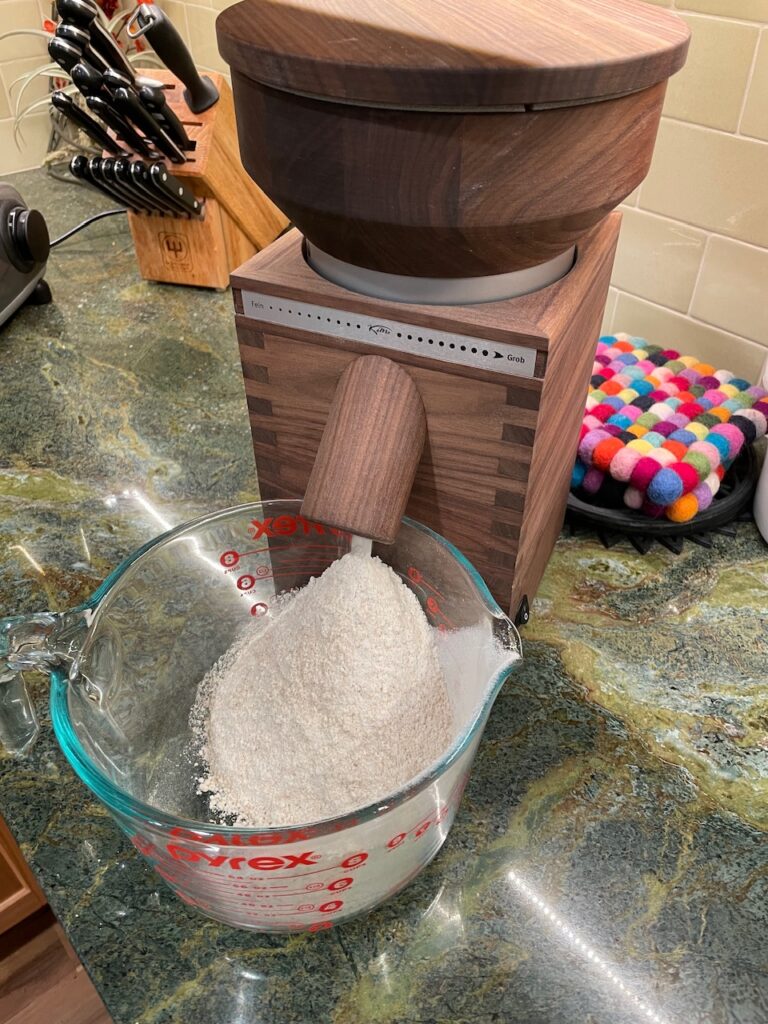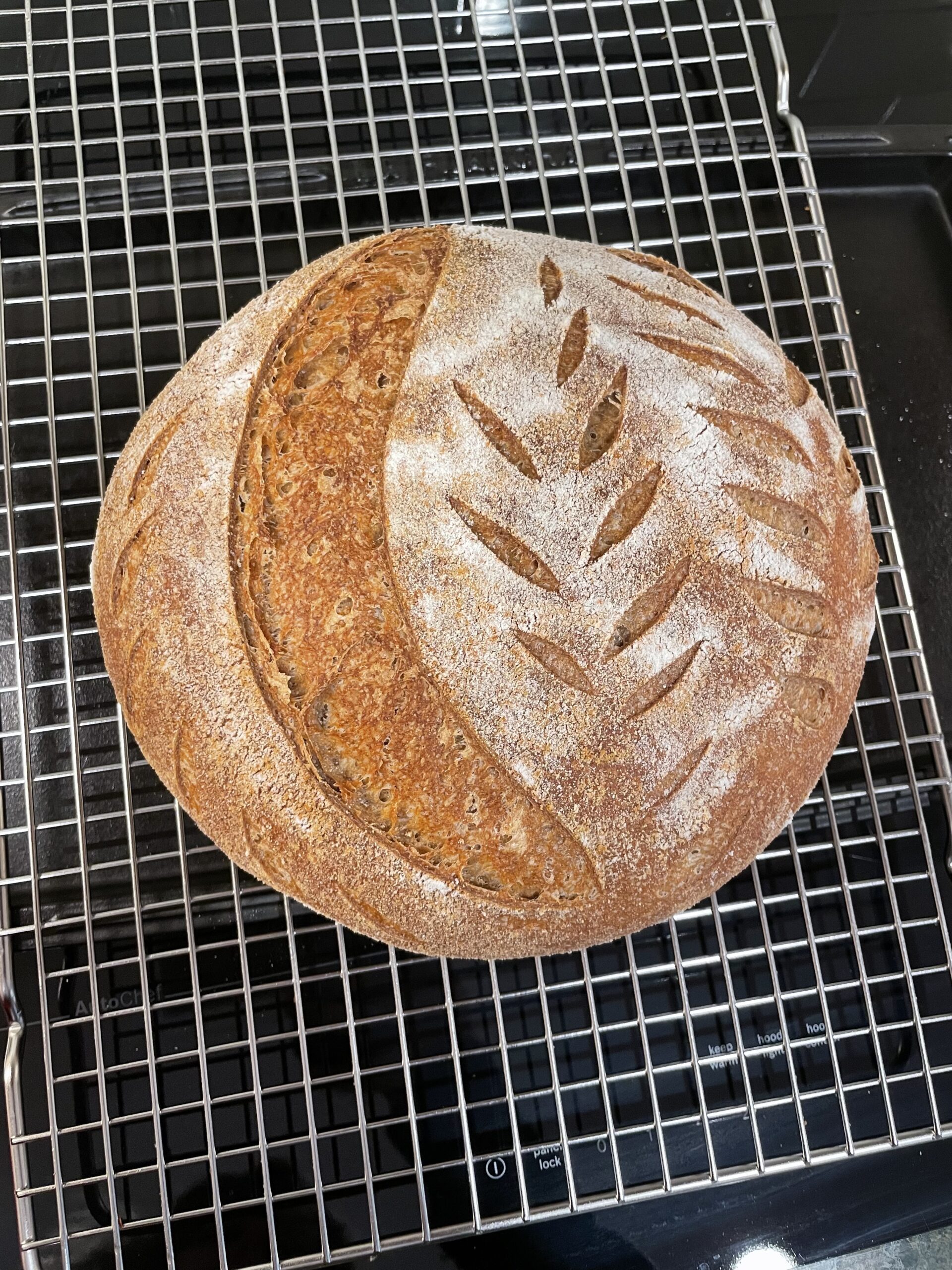How & Why?
How? That's the easiest question to answer!
There are several home-mills out there that take up as little space as a blender! Stone mills, burr mills, impact mills, etc. I linked some sites below so you can research what will work best for you!

Which Mill Should I Buy?
Everyone seems to have their favorite mill, usually it’s the one they own! I found very helpful information from these sites:
From my research, I knew I wanted a stone mill and I got very lucky when I ordered a KoMo Classic from Pleasant Hill as they had it in stock briefly! They sell out very quickly. This one is the Walnut version. Based on what I know now (a year later) I am certain I would be just as happy with the capabilities of a Mockmill 200.
If you think you might be interested in a Mockmill, head over to my friend Elly at Elly’s Everyday as she has great info about milling, sourdough, and is an affiliate for Mockmill!
Why? Well, that is a little bit more involved.
There are so many benefits that you will easily be able to discover in your research (linked below!). Many people who have been told to avoid gluten are actually able to eat products made with fresh flour. This flour is so incredibly different than the highly processed “dead flour” that is in everything at the supermarket. Something that I will always remember reading about is how fresh flour isn’t shelf stable…yet look at how long dead flour lasts on the shelf!!! Between the chemicals and processing of the flour, and the additives in the store-bought bread, it’s no wonder so many people struggle with bread and why there’s a huge anti-carb belief in the health industry. This milling thing is a whole new world though. I need to emphasize that as I talk about fresh flour, I always mean fresh AND unsifted. The germ and the bran are key players and it’s tempting to sift them out so you can have the fine, white powder you are used to baking with. Make sure you do your research before doing any sifting!
The Benefits of Fresh Flour
I make sure to buy organic or regeneratively grown grains to avoid glyphosates and other chemicals. And guess what? You get the benefits even if you don’t make sourdough! It’s all about gut health and when you are using the whole grain, it makes your gut so happy! I battled anemia for years and doctors couldn’t figure it out. Five months into this FMF journey and my iron was back to normal!
I’d been avoiding breads for a year before I started milling because they made me bloated. When I started milling, not only did it not make me get bloated, my heartburn completely stopped and my knuckles stopped aching! These days, the rare times I get heartburn, I can always trace it back to a dead-flour item I ate that day (usually when eating out).
This website is meant to link to some great resources I have found so I can keep track of things and you can do some research instead of me going on and on about my own opinions! Here are some sites that discuss the benefits, some are blogger’s opinions, some are links to scientific studies:
History and Process of Milling
EAP Publications – I’m a scientist and I like reading actual research rather than blindly trusting a blog post. If you are the same, this link is for you.
Harvard Health Publishing – This one is short 😉
NIH – This one is long and has great info about glyphosates (Round-Up) and celiac. I’m putting this here so I don’t lose it.

"Enriched Flour"
The invention of giant steel mills in the late 1800’s easily sifted out the bran and germ and this is when people started eating breads made with just the white flour, the ground endosperm. Millers sold the bran and germ to farmers who fed it to pigs and such. Doctors started seeing a spike in illnesses caused by vitamin deficiencies and research linked it to the removal of the bran and germ from flour. The government asked millers to add it back in, they were profiting from it and did not want to do that. It wasn’t until the 1940’s that it was finally mandated that flour at least be “enriched” with certain nutrients. So, the processing removes dozens of nutrients and only a few get artificially added back in. This is why our flour is labelled “enriched”. I’m speechless.